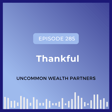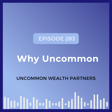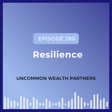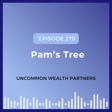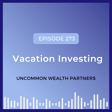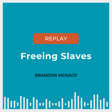
Simplify ETFs: Interview with Brent Uhlenhopp
About the Guest(s):
Brent Uhlenhopp is a financial expert with a rich background in the finance and insurance industry. He is currently an ETF manager at Simplify Asset Management, a company renowned for its innovative financial solutions. Brent holds a degree from the University of Iowa and has previously worked with major finance groups such as Wells Fargo and Principal Financial Group, where he gained extensive experience in investment products and mutual funds. He joined Simplify in mid-2023, attracted by the firm’s cutting-edge approach to incorporating derivatives to enhance ETFs.
Episode Summary:
On this episode of the Uncommon Wealth Podcast, host Phillip Ramsey welcomes Brent Uhlenhopp, an ETF manager from Simplify. The conversation delves into Brent's professional journey, highlighting his transition from Principal Financial Group to the innovative startup Simplify. Listeners are introduced to the intriguing world of ETFs and the unique strategies Simplify employs to offer diversified and robust investment products. With a broad background in financial services, Brent shares his insights on how regulatory changes in 2020 enabled more dynamic use of derivatives in finance.
The episode explores Simplify's forefront role in revolutionizing ETFs by leveraging options and derivatives to enhance returns and provide downside protection. Brent and Phillip discuss Simplify's unique offerings, including their highly impactful Simplify Healthcare ETF, ticker symbol "PINK," which donates proceeds to the Susan G. Komen Foundation for breast cancer research. Brent articulates the importance of innovation in financial instruments, making institutional-grade strategies accessible to retail investors.

